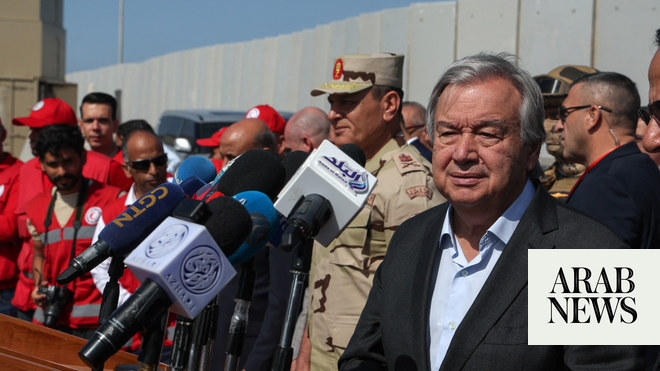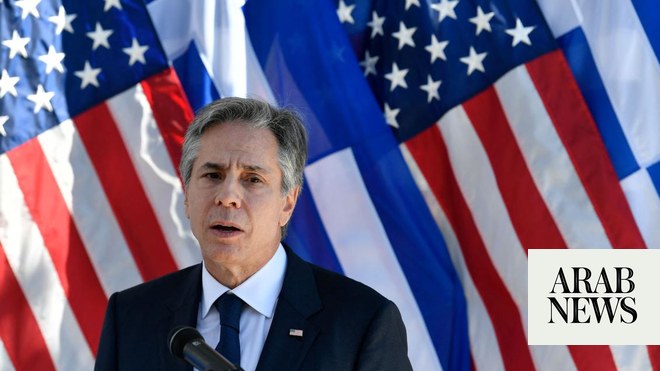
A former foreign policy adviser to three prime ministers including Gordon Brown has been appointed to the key post of UN coordinator for humanitarian affairs.
Tom Fletcher is the latest in a line of six UN humanitarian chiefs from the UK. The most recent was Martin Griffiths, who stepped down in the summer.
Fletcher’s appointment is controversial because there has been a push from the Middle East and elsewhere for the post no longer to be monopolised by a British candidate, and that all such senior UN postings should be subject to open competition.
More than 60 eminent diplomats and humanitarians wrote a letter to the UN secretary general, António Guterres, in April saying that at a time of unprecedented humanitarian crises it would be “quite wrong arbitrarily to restrict the search of a humanitarian coordinator to nationals of any one member state”.
Saudi Arabia and Qatar, two countries that supply large amounts of humanitarian aid, had put forward rival applications. Griffiths had also said the job is too crucial to be left to favouritism, and numerous UN resolutions have been passed calling for the appointments process to be made more transparent and more open to the global south.
It is understood Guterres slowed the appointments process to prevent the Conservative government nominee, Tariq Ahmad, a former Middle East minister, being given the role. With Labour expected to win the election, he wanted to wait to give Keir Starmer a chance to make a nomination.
Fletcher is seen as a gifted communicator with the diplomatic skills needed to intervene in conflicts that have triggered humanitarian crises from Gaza and Yemen to Myanmar, Sudan and Ukraine. The role is not only to raise humanitarian funds, but also to resolve the political conflicts that led to displacement and hunger.
Brown sprung to Fletcher’s defence, saying support for humanitarian aid needed to be radically extended to meet the emergencies engulfing more than 50 countries and affecting more than 100 million people. “Tom has huge diplomatic and leadership experience. He will bring creativity and resilience to this role,” he said.
Fletcher’s appointment is particularly striking given that the UK’s status as a development superpower with a large aid chequebook has been damaged by successive budget cuts that the Labour government is not expected to quickly overturn.
Speaking after his appointment was confirmed by the UN in New York, Fletcher said: “The humanitarian community is underfunded, overstretched and under attack. We must reset the relationship between the world and those in direct need. We can be better neighbours and ancestors.
“I am grateful for the UN secretary general Guterres for giving me this opportunity to support that effort. I pay tribute to Martin Griffiths and to my future comrades in the humanitarian movement who are leading such vital work. I will defend humanitarians, humanitarian values and most importantly the people we are here to serve.”
His appointment is the first of a series that Starmer needs to make, including cabinet secretary, national security adviser and British ambassador to Washington.
The ambassador posting is likely to be political with four candidates in the running: Tony Blair’s former communications chief Peter Mandelson, the former foreign secretary David Miliband, the former international development secretary Valerie Amos, and the former EU foreign affairs chief Catherine Ashton.
Mandelson is also standing to be chancellor of Oxford University and has been told no prohibition exists on holding both jobs.
The current UK ambassador to the UN, Barbara Woodward, is seen as a possible national security adviser along with the senior civil servant Olly Robbins and the former permanent secretary at the Home Office, Matthew Rycroft.












